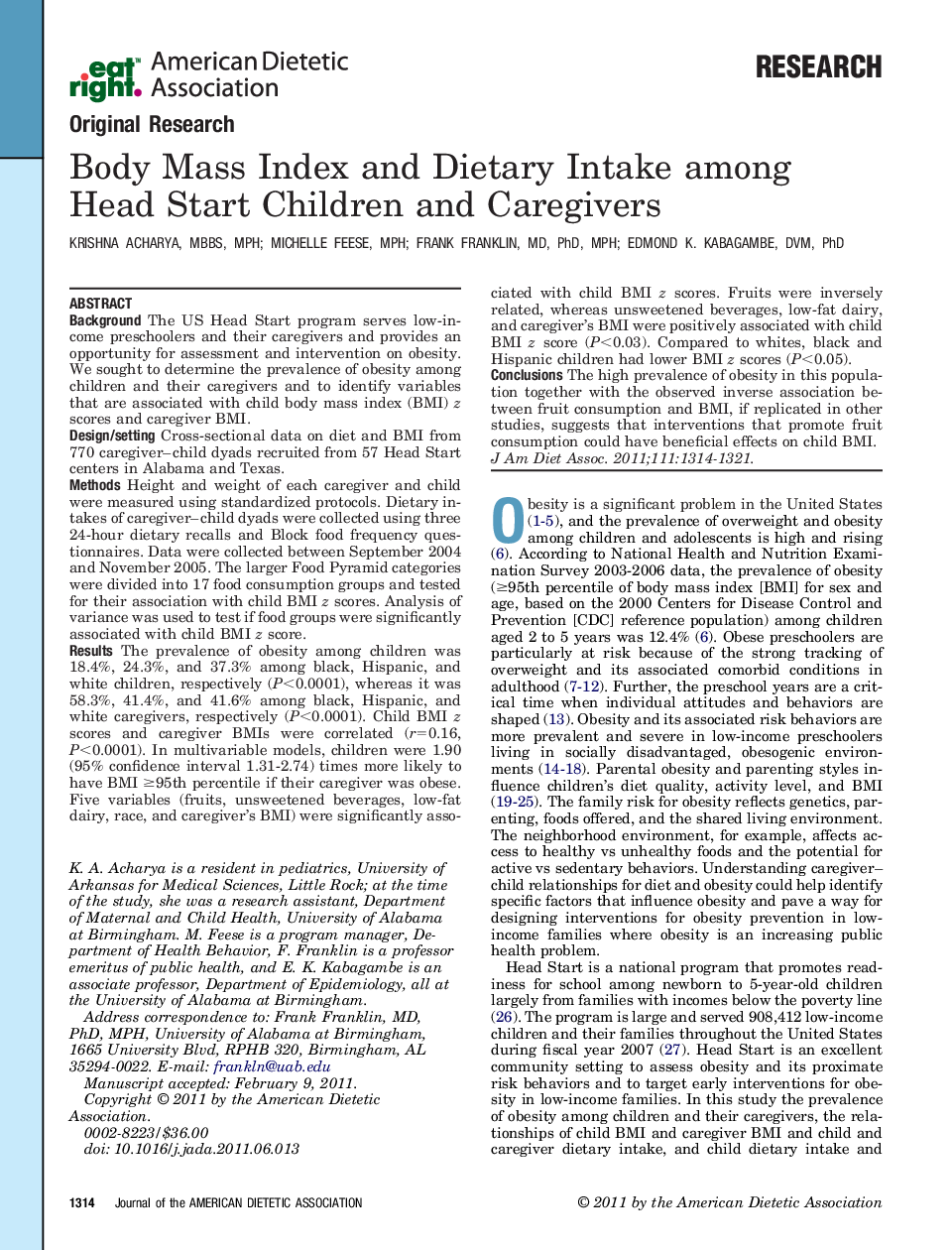| کد مقاله | کد نشریه | سال انتشار | مقاله انگلیسی | نسخه تمام متن |
|---|---|---|---|---|
| 2653890 | 1139793 | 2011 | 8 صفحه PDF | دانلود رایگان |
BackgroundThe US Head Start program serves low-income preschoolers and their caregivers and provides an opportunity for assessment and intervention on obesity. We sought to determine the prevalence of obesity among children and their caregivers and to identify variables that are associated with child body mass index (BMI) z scores and caregiver BMI.Design/settingCross-sectional data on diet and BMI from 770 caregiver–child dyads recruited from 57 Head Start centers in Alabama and Texas.MethodsHeight and weight of each caregiver and child were measured using standardized protocols. Dietary intakes of caregiver–child dyads were collected using three 24-hour dietary recalls and Block food frequency questionnaires. Data were collected between September 2004 and November 2005. The larger Food Pyramid categories were divided into 17 food consumption groups and tested for their association with child BMI z scores. Analysis of variance was used to test if food groups were significantly associated with child BMI z score.ResultsThe prevalence of obesity among children was 18.4%, 24.3%, and 37.3% among black, Hispanic, and white children, respectively (P<0.0001), whereas it was 58.3%, 41.4%, and 41.6% among black, Hispanic, and white caregivers, respectively (P<0.0001). Child BMI z scores and caregiver BMIs were correlated (r=0.16, P<0.0001). In multivariable models, children were 1.90 (95% confidence interval 1.31-2.74) times more likely to have BMI ≥95th percentile if their caregiver was obese. Five variables (fruits, unsweetened beverages, low-fat dairy, race, and caregiver's BMI) were significantly associated with child BMI z scores. Fruits were inversely related, whereas unsweetened beverages, low-fat dairy, and caregiver's BMI were positively associated with child BMI z score (P<0.03). Compared to whites, black and Hispanic children had lower BMI z scores (P<0.05).ConclusionsThe high prevalence of obesity in this population together with the observed inverse association between fruit consumption and BMI, if replicated in other studies, suggests that interventions that promote fruit consumption could have beneficial effects on child BMI.
Journal: Journal of the American Dietetic Association - Volume 111, Issue 9, September 2011, Pages 1314–1321
